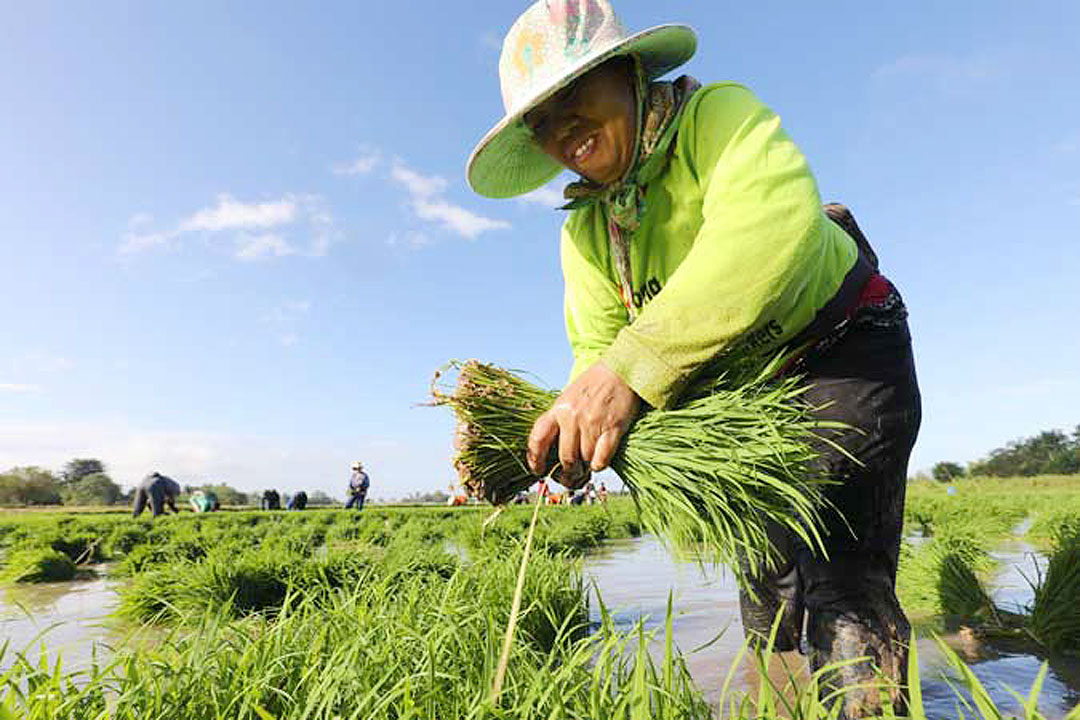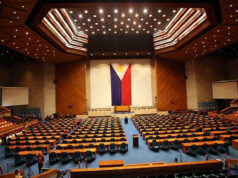Marcos: Technology to help rice farmers face calamities, fight smuggling

PRESIDENT Ferdinand R. Marcos, Jr. on Monday said technology sharing could help the rice sector deal with natural calamities and in fighting smuggling.
In a speech at the sixth International Rice Congress in Pasay City, the President said disaster resilience in rice production is important.
He cited typhoons and other natural calamities that affect farmers and criminal and anti-competitive activities such as smuggling and hoarding.
“Seeing the complexities of the situation, we strive to approach it in a comprehensive and a holistic way based on science,” he said.
Mr. Marcos said his government has been working with international institutions like the International Rice Research Institute (IRRI) and foreign governments “not only to ensure the steady supply of rice but also to enhance the development and sharing of crucial technologies and strategies.”
“We have likewise been working on our disaster preparedness and resilience so that the rice industry can respond and adapt to the effects of El Niño and other calamitous events,” he said, citing the need to boost research and help farmers acquire machinery.
“I enjoin all of our government agencies and of course our partners in the private sector to continue collaborating with the IRRI and its partners in identifying creative solutions and mechanisms for a more robust rice industry,” he added.
The President on Sept. 5 imposed a price cap on rice that ran for almost a month, amid reports of hoarding and smuggling.
The cap, which was lifted on Oct. 4, limited the price to P41 a kilo for regular milled rice and P45 for well-milled rice.
Economists said rice prices remained elevated despite the price cap. Rice inflation rose to 17.9% in September from 8.7% in August, the fastest since March 2009.
Also on Monday, Mr. Marcos vowed to support efforts to consolidate farmers’ cooperatives, which he said helps improve food security.
“In rice alone, our production cost is very high, and one of the biggest factors is the labor cost,” he said in mixed English and Filipino.
“The labor cost for every hectare of rice here in the Philippines is double the labor cost per hectare in Vietnam, in Thailand, even Indonesia,” he added.
The Philippine agriculture sector could achieve economies of scale through cooperatives, he said, noting that the use of huge farm machinery for production would help cut food prices.
There were 20,105 cooperatives in the country as of 2022, lower than the 20,467 cooperatives registered in 2021, the presidential palace said in a statement.
It said credit and financial service cooperatives accounted for more than half of the total, followed by agriculture, consumers and marketing cooperatives. The industry generated almost 335,000 jobs last year.
Meanwhile, Mr. Marcos encouraged the private sector to help the Philippines achieve its goal of becoming a part of the global chain of electric vehicles “by investing in manufacturing facilities in our country.”
“Strive with us as we generate more employment opportunities, enrich our people’s quality of life and foster more environmentally friendly communities,” he said in a speech at the launch of Dongfeng Motors in the Philippines.
Dongfeng Motor Corp. Ltd. is a Chinese state-owned automobile maker.
“In return, we offer fiscal incentives such as the income tax holiday and duty exemption of capital equipment, raw materials and spare parts used in electric vehicles,” he added.
Mr. Marcos said the government aims to increase the share of electric vehicles to 50% by 2040. As of late 2020, there were 8,800 electric vehicles in the country.
“To boost this number, we are working on the gradual shift to electric vehicles for public transportation,” he said.
The President said the government should encourage the shift to electric vehicles “considering our continued dependence on imported fuels and the volatility of oil products in the world market.”
“We not only get savings in fuel and gas, but also significantly lessen our greenhouse gas emissions and champion sustainability in our day-to-day activities,” he added. — K.A.T. Atienza



